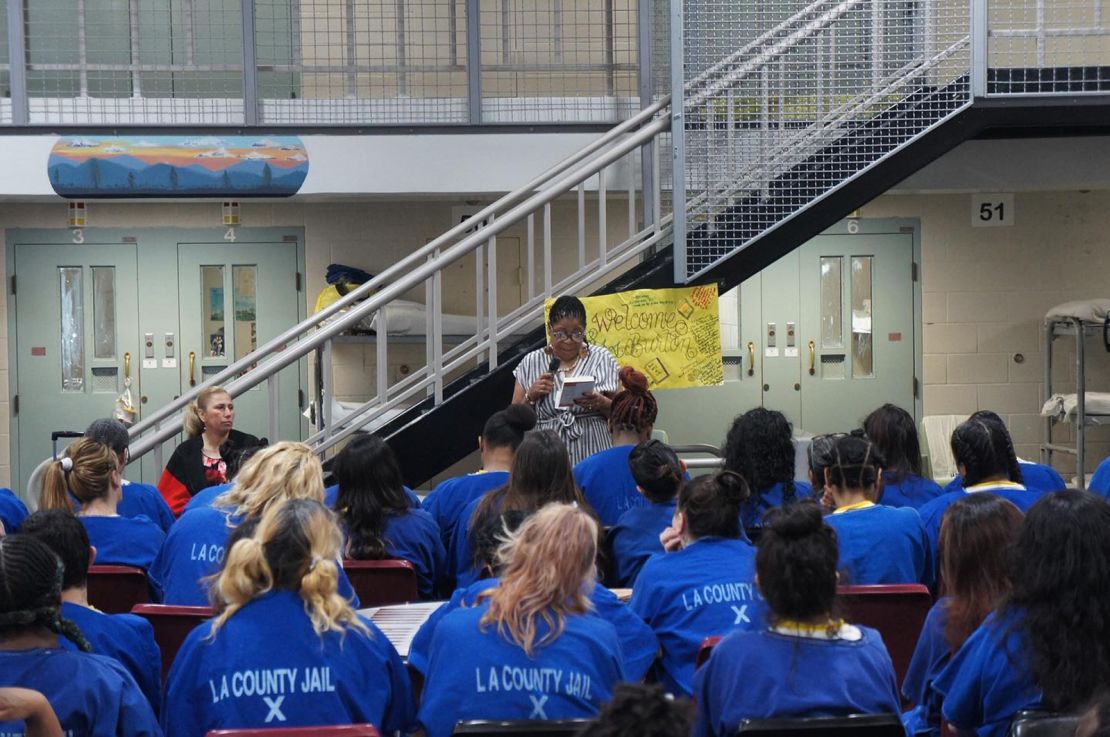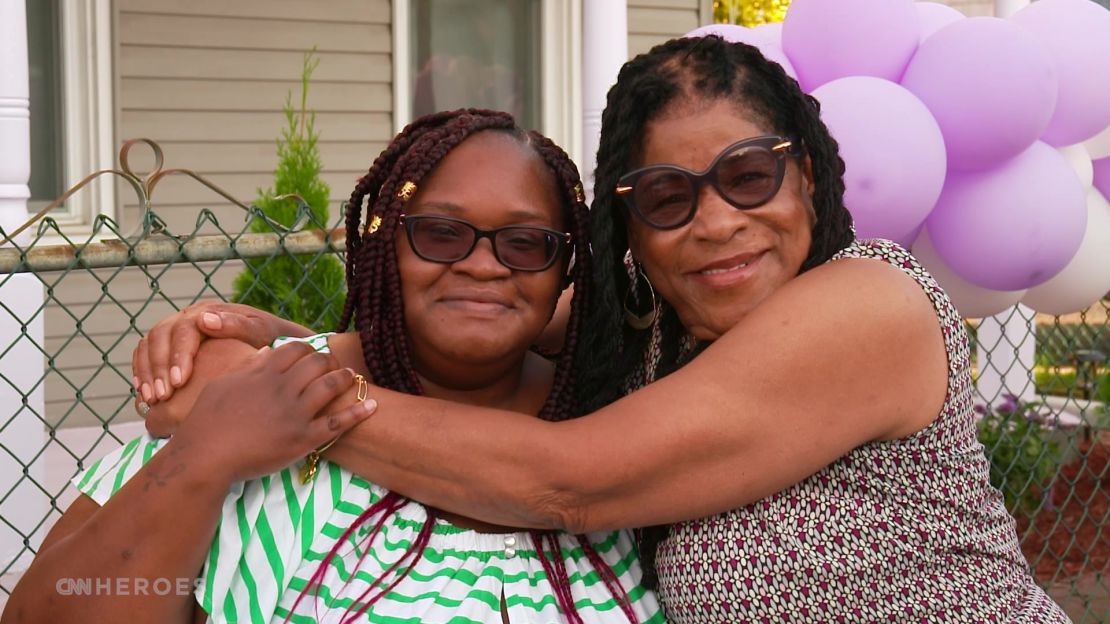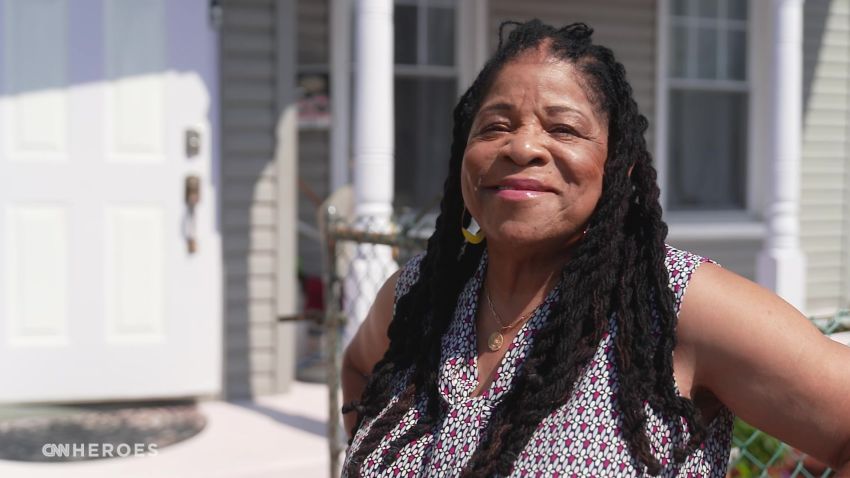Perched on a hill, surrounded by tall razor wire fences, the Bedford Hills Correctional Facility is the only maximum-security women’s prison in the state of New York. Recently, more than 100 inmates gathered in person and online at four other facilities to hear from Susan Burton, an author who had done time behind bars herself.
“For 20 years, I cycled in and out of prison just hoping and wishing to find my way,” Burton told the women. “I hope my story will help you realize there are no throw-away people – that your life matters.”
Life had never been easy for Burton, but the accidental death of her 5-year-old son nearly crushed her. She fell into addiction and ended up going to prison; without support, when she was released, she fell into her old ways and ended up going back.
Six times.
“It was like I was in a revolving door of incarceration. I would walk out the gates and I would end up going back to prison. Over and over again,” she said. “Finally, I found help. And that led me to a different path.”
For 25 years, Burton has dedicated herself to helping formerly incarcerated women in south Los Angeles avoid that revolving door. Through her nonprofit, A New Way of Life Reentry Project, she provides them with housing and a host of resources. Since 1998, she has helped more than 1,000 women rebuild their lives.
Sharing her story
In 2010, she was honored as a Top 10 CNN Hero. She says the global spotlight was a gamechanger.
“It added this level of legitimacy and integrity that I had been working so hard to accomplish,” she said. “And all of a sudden, I was able to get real support to expand the work. And we went from four homes to 12 homes.”
In 2017, she published her autobiography, Becoming Ms. Burton, which became a bestseller. But as she did book signings in bookstores around the country, Burton realized that she wasn’t reaching an important population.
“I thought about all the women in prison that needed to have hope, so I wanted to get the book to them,” she said. “I set out on a trail to go to as many prisons as I could go – and I went to 64 prisons in a year.”

She gave away more than 8,000 books, hoping to encourage incarcerated women and show that it was possible to rebuild their lives after prison. Instead, Burton saw how desperate many of them were because they didn’t have anywhere to go after they were released.
“I did book signings, and those women stood up with tears in their eyes,” she said. “I would lay in my bed at night thinking, ‘What could I possibly do? I know I can’t be everywhere – all across the nation.’”
A network to keep women safe after prison
In 2018, she launched the Sisterhood Alliance for Freedom and Equality, known as SAFE – a housing network that trains women to replicate Burton’s model in their communities. To date, she’s trained 31 people who have started their own programs; 90% of them are formerly incarcerated women.
Pamela Zimba is one of them. After she was released from prison, she’d ended up living in a homeless shelter. Having earned a college degree while incarcerated, she managed to get on her feet and ended up working at the Ford Foundation. But while she’d achieved success in many ways, she wanted to do more.
“I wanted to open a house for women coming home so that they don’t have to go through the struggles that I went through,” Zimba said.
She attended one of the SAFE trainings in Los Angeles and found that with Burton’s help, she could realize her dream.

“She literally gives you all the tools you need to start your house,” she said. “Also, she gives everybody a $50,000 grant. She helps you hit the ground running.”
Zimba ended up leaving her job to dedicate herself to this work full time. Last July, she opened Lilac House in Mt. Vernon, New York – a home that can accommodate up to seven women. At the opening ceremony, she made a point to thank Burton, who’d come in from California to show her support.
“I’m grateful to Susan. I pray to one day help as many women as she’s been able to help,” she said. “She made my dreams come true!”
Helping people like Zimba has been hugely rewarding for Burton, and it’s greatly expanded the reach of her work. The SAFE network now has 38 homes around the US as well as three in Africa and has provided housing to more than 700 women and nonbinary individuals since it began. Now, when Burton visits women in prison, she feels that she’s offering them more than her story.
‘I go back with something tangible,” she said. “I’m coming back saying, ‘Here’s someplace for you to go.’”
Jazmin Flowers, an inmate at Bedford Hills Correctional Facility who attended Burton’s talk and book signing, agreed.
“I thought the event was great. There’s a lot of options out there for people,” she said. “Susan definitely made me feel more inspired about my future.”
Enabling women like Flowers to build better futures is what keeps Burton motivated. It’s also why she wants to cultivate the next generation of leaders, like Zimba, to continue her work.
“There are 60,000 people coming home every year, so we have just touched a fraction of the people that need a second chance at life,” she said. “But I feel so pleased with what’s been done so far. You plant the seed, and it gets watered – and it grows.”






